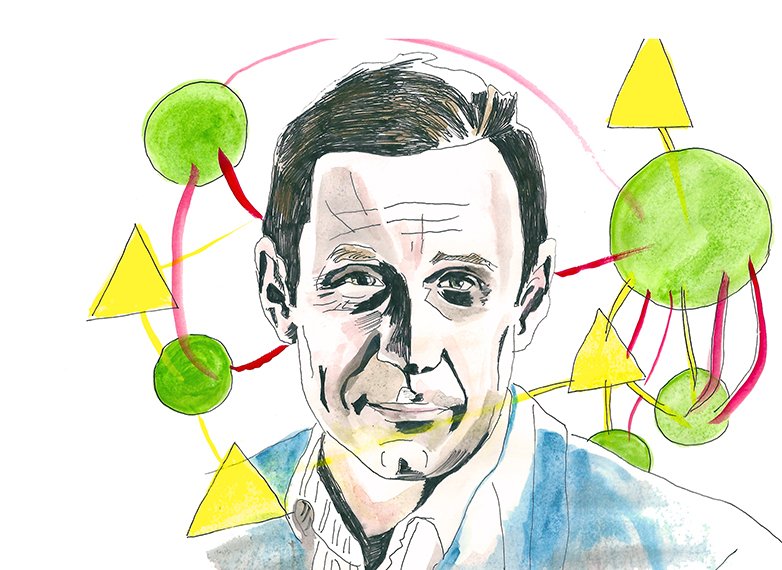
Paul Mason is a journalist, writer, film-maker and public speaker. He is the author of six books, including Postcapitalism, Why It’s Kicking Off Everywhere and Rare Earth: A Novel. As economics editor at both BBC Newsnight (2001-13) and Channel 4 News (2013-16) he won numerous awards and plaudits, including the Africa Business Reporter of the Year, RTS Specialist Reporter of the Year and the Wincott Award.
Paul Mason was on the front line of covering the global financial crisis from 2007 onwards – but his work as a reporter ranged beyond economics: he reported from New Orleans during Hurricane Katrina, from the 2007 ethnic conflict in Kenya, the Indignados protests in Greece and Spain, the Taksim Square protest in Turkey, the Gaza War of 2014 and from the floor of the Congress of the Communist Party of China. His documentary series #ThisIsACoup (dir. Theopi Skarlatos) covered the Greek crisis of 2015 from inside and outside the corridors of power.
He speaks regularly to professional audiences across the globe in business and politics, about the impact of information technology on the economy and society. Recent engagements include Moscow, Warsaw, Zagreb, Amsterdam, Berlin, Athens, Vienna, Zagreb, Seoul, Sydney, Toronto, Helsinki and New York City.
In a recent talk in London, Paul explained how neoliberalism is broken, and what might come after. His argument is that the speed of technological innovation is becoming so accelerated, it is challenging classical economics. Information technology in itself, is a revolution that, even though is driven by capitalism, it has the tendency to drive the value of much of what we make towards zero, as various other writers (Jeremy Rifkin and others) have already described. That tendency has the potential to destroy an economy based on markets, wages and private ownership.
The outcome of technological innovation, can in the end, be the possibility of creating a more socially just and sustainable economy for all, on a global scale.
Previously to his talk, Intelligenthq had the opportunity to interview him about the main ideas of his book, and his vision of a fairer system:
Interview with Paul Mason from IntelligentHQ on YouTube.
Paul’s text of the talk is fully available here.
About PostCapitalism: A Guide to Our Future
Over the past two centuries or so, capitalism has undergone continual change – economic cycles that lurch from boom to bust – and has always emerged transformed and strengthened. Surveying this turbulent history, Paul Mason wonders whether today we are on the brink of a change so big, so profound, that this time capitalism itself, the immensely complex system by which entire societies function, has reached its limits and is changing into something wholly new.
At the heart of this change is information technology: a revolution that, as Mason shows, has the potential to reshape utterly our familiar notions of work, production and value; and to destroy an economy based on markets and private ownership – in fact, he contends, it is already doing so. Almost unnoticed, in the niches and hollows of the market system, whole swathes of economic life are changing.. Goods and services that no longer respond to the dictates of neoliberalism are appearing, from parallel currencies and time banks, to cooperatives and self-managed online spaces. Vast numbers of people are changing their behaviour, discovering new forms of ownership, lending and doing business that are distinct from, and contrary to, the current system of state-backed corporate capitalism.
In this groundbreaking book Mason shows how, from the ashes of the recent financial crisis, we have the chance to create a more socially just and sustainable global economy. Moving beyond capitalism, he shows, is no longer a utopian dream. This is the first time in human history in which, equipped with an understanding of what is happening around us, we can predict and shape, rather than simply react to, seismic change.

IntelligentHQ Your New Business Network.
IntelligentHQ is a Business network and an expert source for finance, capital markets and intelligence for thousands of global business professionals, startups, and companies.
We exist at the point of intersection between technology, social media, finance and innovation.
IntelligentHQ leverages innovation and scale of social digital technology, analytics, news and distribution to create an unparalleled, full digital medium and social business network spectrum.
IntelligentHQ is working hard, to become a trusted, and indispensable source of business news and analytics, within financial services and its associated supply chains and ecosystems.



























